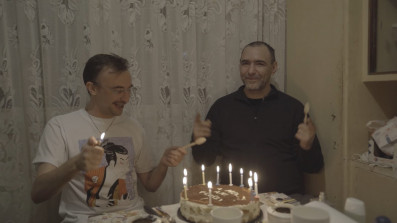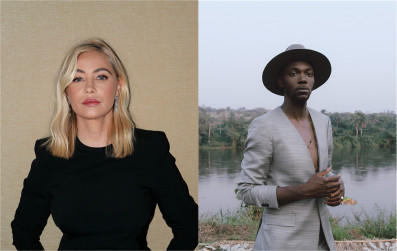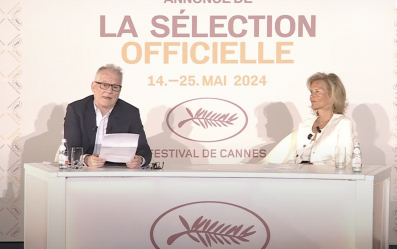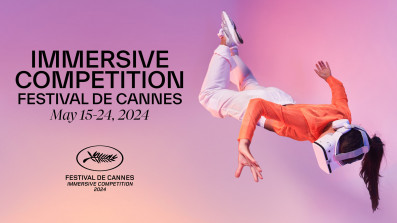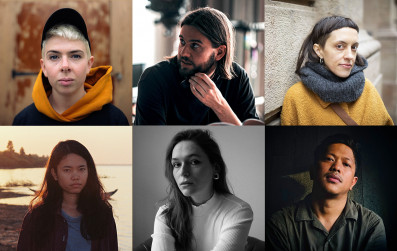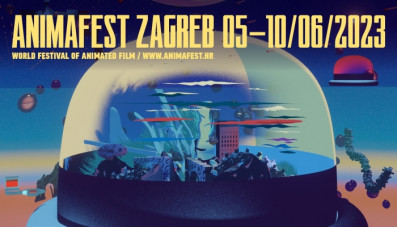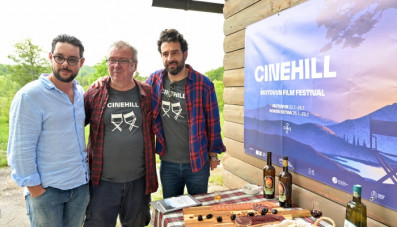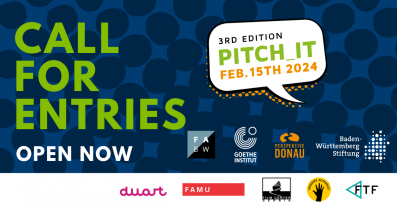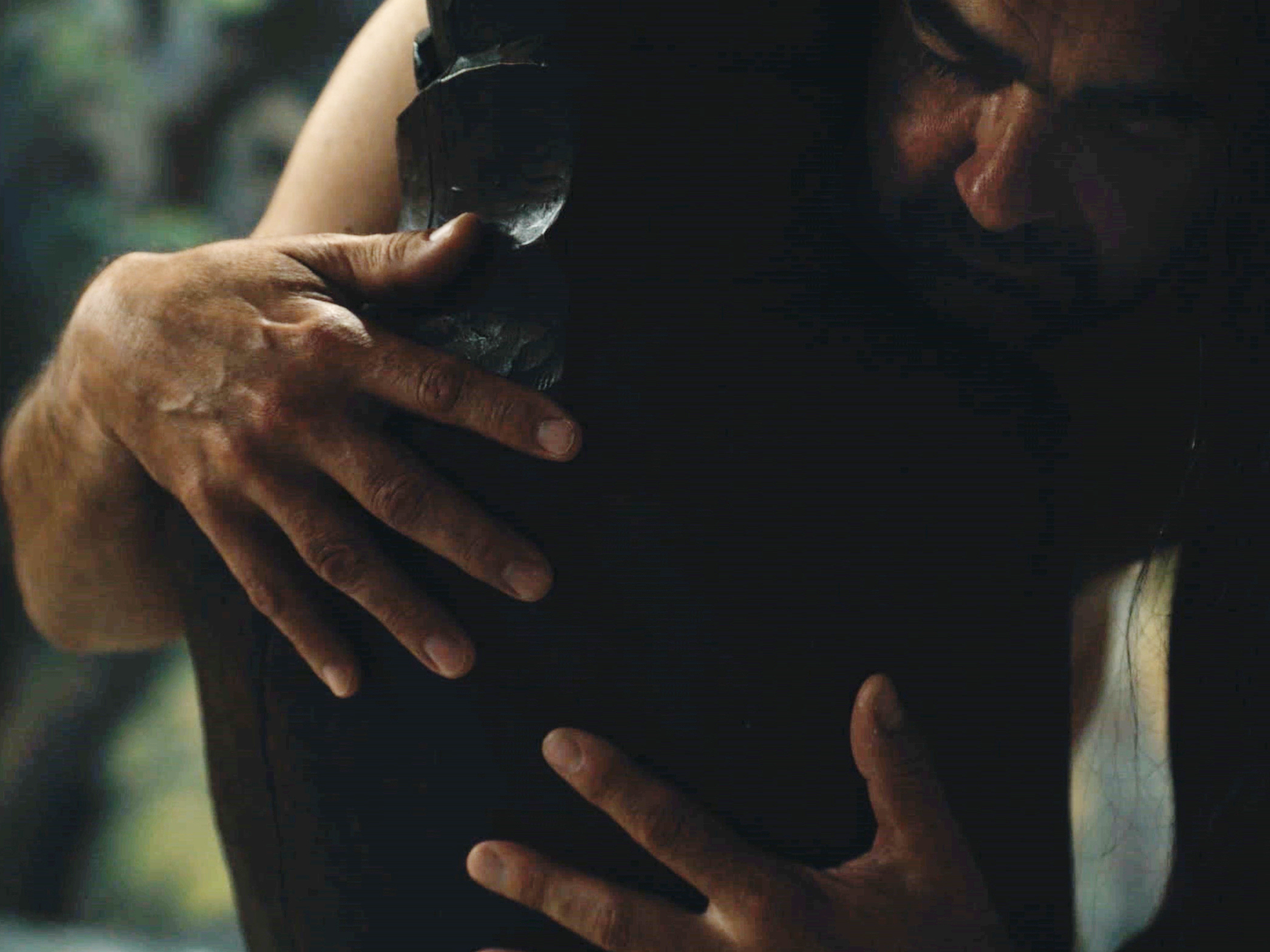
Pravo Ljudski Film Festival presents Special program
History, otherwise: Critical Cartography
To new maps of the world
Ten films that have in common that deal with history in various ways and with critical, and sometimes humorous, were offered to the audience within a special program section called History, otherwise: Critical Cartography/Historija, inače: Kritičke kartografije. One film is very long, one feature film, two are about an hour long and six are short. Most often they are documentary, often educational, sometimes satirical, experimental, personal or completely observing – in any case, they illuminate historical moments from diverse sides and are often adorned with a strong author's handwriting. The link is questioning history from the present perspective and reflecting on what and how much its impact is on today's thoughts, lives, philosophies...
Opening with a contradiction
The first film to be screened within the section is a fifteen-minute monologue on the unique building of the Haskel Free Library and opera house on the border between the United States and Canada. The building located on the 45th parallel can equally be accessed from both states and as long as you go out to the country from which you came you will not be suspicious to anyone. In strange recent times, it has served various legal, semi-legal and illegal purposes. The contradiction between the borders and laws of the two countries inspired the director to connect this place with several unpleasant events that took place on two sides of different borders, causing the dilemma of which legislation to judge the murders. Both events and dilemmas are quickly and eloquently presented by the narrator, the film is called the 45th Parallel and the author is Lawrence Abu Hamdan.
Assaf Gruber's experimental short film Never come back questions different perceptions of art. A bare-accordionist whose mournful, squeaky accordion accompanies the entire film soundly, seeks inspiration in the museum's warehouse of paintings and sculptures. As in prison, there are bars all over the place and he approaches different sections by pulling out oil paintings and moving sculptures, looking for that immortal work that will encourage him to play. Who seeks it and finds it, so that the sad wheezing slowly turns into a melody and soon we recognize the once great hit Voyage, voyage by Desireless. How is, and is it, the text of this poem related to the images imprisoned in the warehouse?
Through telephone conversations between father and son, which are often interrupted due to a bad relationship, we learn about the life paths of Syrians Khaled Abdulwaked, director of the movie Background, and his father Saadallah. On the screen is most often the process of digitizing old father photographs and inserting the father's character into these contemporary photographs and, here and there, scenes of the sky or landscape. Both father and son, six decades apart, found themselves in Germany, studying – a father as a young man eager for knowledge that he would like to use at home in the oil industry, and his son as a refugee whose only desire is to rescue his old father from a country where war is raging. In an effort to grant him asylum, the son visits the cities and institutions where his father lived and studied and regularly informs him of the findings. In this process, a rich archival material is revealed that testifies to the forgotten time when advanced states helped students from those of the poor to obtain vocational education, learn languages and return to their country. Conversations full of sadness and love are interrupted by detonations and the viewer is left to conclude for himself how the story might end.
In a solitary Orthodox monastery on Athos Mountain, director Neritan Zinxhiria found a miraculous treasure - a collection of glass photographic plates made by one of the monks in the early twentieth century. One of the few visitors here forgot the camera and the monk Prokopius, who was there for a lifelong service, photographed scenes from religious life created a testimony of ancient times whose time distance is difficult to guess. Zinxhiria had similar scenes, because in the Monastery of Simonopetra time seemed to stand still, he filmed with a super eight and upon his return his impressions from a meditative adventure shaped into a short film Light of Light. By combining some of the 3,000 preserved and restored photographic records and his own shots, he made a black and white story about the timelessness of spiritual life.
Refugee topics strongly represented
Mila Zhluktenko and Daniel Asadi Faezi made a short observational film Awakening in Silence about Ukrainian refugees who found refuge in Germany. These are mostly women, children and the elderly incapable of warfare. They truly long for family members, the lands they have left, and the sounds from their homeland. Longing breaks through phone conversations, children's desires and adult fears. The children learn German and, since the refugee center is located in the former barracks, compare the scenes from World War II painted on the walls of the barracks with those at home and conclude that there is not much fundamental difference.
In the same section is another short film that examines refugee topics, this time from the aspect of trying to express emotions in a new language. She is a Ukrainian woman who, while learning Portuguese, is looking for ways to express herself not only in words but also with pictures, videos of Portuguese lessons and memories. The language barrier triggers the creative side of director Daryne Mamaisur and creates a collage of thumbnails from something that resembles an adult primer as she recalls life in Kiev and discovers the meanings of the words in a new language. The video essay O Fumo do Fogo (Smoke of the Fire), as the author says, is dedicated to all those who remain close despite the distance.
Karla Crnčević's short film Wild Flowers/Divlje cvijeće is also connected with war and exile and was created from digitized footage made by her father with a VHS camera when he first visited a war-ravaged house in the village of Radovčići from which the family fled in the spring of 1992. It is an interesting beginning of the film in which mouse clicks on a digital map actually correspond to the steps, the steps that both the author and her family are returning to their home and stopping life. While working on the film, the author talks on the phone with her father, who remembers almost none of the filmed scenes. How deceptive is human memory, and how much do we need material evidence to suppress painful moments by forgetting, even when they are associated with those who defiantly anticipate a new beginning as wildflowers do here blooming on the burning ground?
The recent history of the Balkan countries is also discussed in the film Summoned and Invited/Prizvan i pozvan by Luka Papić and Srdja Vučo. We meet with a historical satire or political comedy that portrays, pardon, ironizes, five presidential candidates-outsiders in the first multiparty elections in Yugoslavia in 1990. The authors used a bunch of authentic footage and confronted them with the candidates' current statements. From a thirty-year distance, it's easy to laugh at people who only took themselves seriously, and you will laugh for sure. And yes, at first this movie is funny. But lights are quickly lit in the minds that say that the bogeyman of national chauvinism is ravaging the same spaces even today, so you wonder if anything has changed and, if so, in what direction did the changes go – for better or for worse? Biserka among pearls, the self-declared poet Ljiljana Čuić, will declare: "I like to emerge from the torrent. Although I can't swim. Do you understand?" Understand?
The longest in the section is the complex experimental film La force diagonale , written by Annik Leroy and Julie Morel. It is demanding for the viewer because it requires a strong concentration and the ability to quickly adapt to two different parts of the film, the first of which contains four difficult human stories and the second is much more philosophical. In the first part, people of different backgrounds, ages and genders, who have had difficult and marking life experiences, talk about how external conflicts have affected their internal turmoil and changes. The second part is dedicated to the philosophy of Hannah Arrendt and is told by many voices who read her letters, notes and personal turmoil, and Claire Vivianne Sobottke's movement and acting. The film essentially deals with the issues of banality, human stupidity, and the inability (or lack of desire) to understand others/otherwise opposed by the individual's ability to start again and find new motives and ways to survive, and more than mere survival. Bring a rested, smart and open head to the screening, you will need.
El Shatt closing the Pravo ljudski film festival
The last on the program and the film that will close this year's Pravo Ljudski festival is El Shatt – a blueprint for the utopia/Nacrt za utopiju by Ivan Ramljak. Full of tenderness and warmth towards the characters – the participants of the Dalmatian escape to Egypt after the capitulation of Italy and their memories, the director dealt with the reconstruction of the events he read about in the diaries of his grandmother. Letting the surviving inmates navigate their memories uninhibitedly, the director blends their voices with black and white photo and film records from a long time that were marked by humanism, togetherness, diligence, benevolence, creativity, and even humor. Youth is always beautiful, even when it is wartime, and so in memory, the more time leaves a safe distance between then and now, beautiful moments remain and those difficult ones are gilded by the patina of oblivion. Since neither in today's Croatia, nor in a much wider field than a small country, the era of utopian communism realized in El Shatt is not at mercy, dealing with something that could be if humanity followed less down-to-earth ideas than those it follows today has not only artistic but also historical value.
The program is rich and you will surely find something in it that interests you, so we invite you to join us in following the program section History, otherwise: Critical Cartography. Perhaps cartographic study and writing new maps of the world awaits your contribution.
See you from 11th to 16th October in Sarajevo for the 18th Pravo Ljudski Film Festival!



